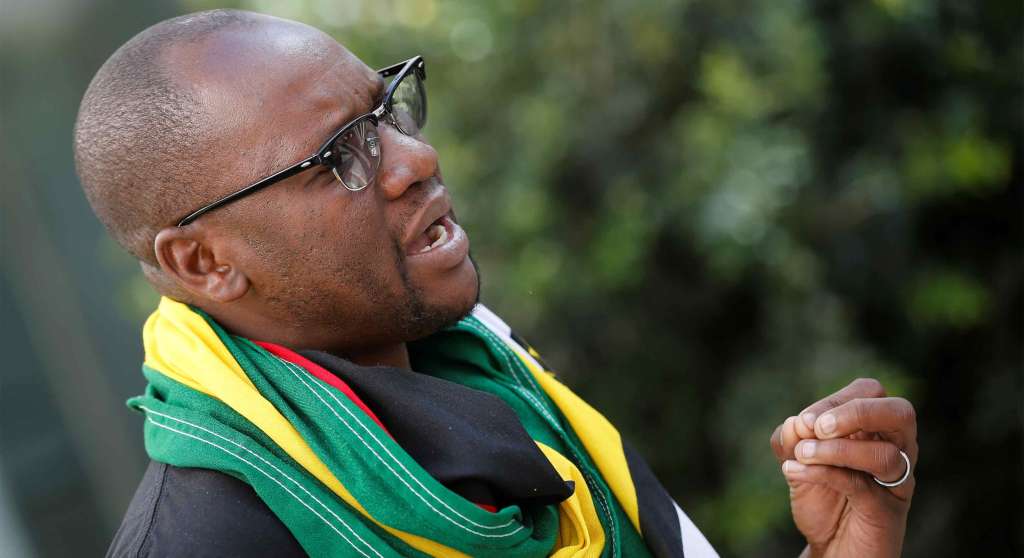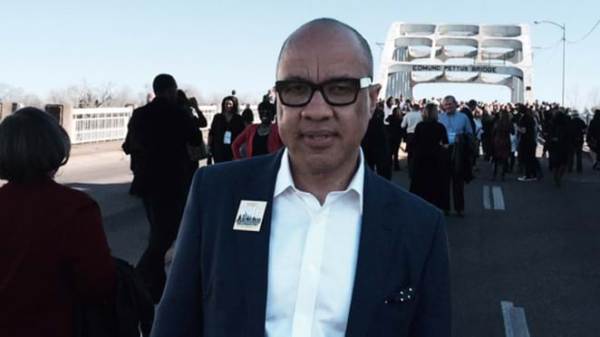 REUTERS/Newscom
REUTERS/NewscomIn Zimbabwe, the central promise of democracy—that government will work for the people, reflect the will of the people, and serve and be accountable to the people—has long been broken. The country’s high levels of inequality, highly partisan security sector, and history of stolen elections have created an uneven playing field, and a challenging, repressive climate for civil society.
This year, the disappearance of a staggering $15 billion worth of diamond revenues resulting from a complex web of corruption, tax evasion, and illicit financial flows pushed Zimbabweans to the brink. Zimbabwe is one of the world’s largest producers of diamonds, yet most Zimbabweans are wallowing in the dust of poverty and derive little or no benefit from this vast wealth. Without this huge amount of revenue making its way into the national treasury, the economy simply does not have enough cash to sustain itself, and this has led to cash shortages. Civil servants are not being paid on time and the civil service payroll is at least three months behind schedule. The Reserve Bank proposed reintroducing bond notes, a local currency, to ease the cash shortages. For Zimbabweans, this was a déjà vu moment, a possible return to the country’s fictitious money.
Thanks to a video by an unknown pastor named Evan Mawarire, things started to shift. Mawarire posted a video on Facebook about the worsening economic crisis and political repression, explaining that he could no longer afford to pay his children’s school fees. Captured in the colors of the national flag, Mawarire’s lamentation over Zimbabwe’s broken national values, dreams, and aspirations resonated throughout the country. He urged Zimbabweans to reclaim their aspirations and reminded them that the power to change the status quo is in the hands of citizens. His video went viral. Since then, Zimbabweans have been finding their voices online, organizing and expressing themselves under a banner—and a hashtag, #ThisFlag—that is not aligned with any particular political party: the Zimbabwean flag.
Equipped with a new way to protest—with social media evolving into mass mobilization on the streets—Zimbabweans had fresh hope for their democracy. Over the past two months, citizens have staged a massive stay-at-home protest that shut down the country for an entire day. Another protest at the Zimbabwe-South Africa border against a ban on importing goods from South Africa resulted in the ban’s swift suspension. During this time, Mawarire continued to use digital activism to advance civic mobilization and mass communication with other citizens.
When Mawarire was arrested on charges of “treason,” the country stood together in a sign of unprecedented solidarity. After thousands of citizens peacefully but fearlessly showed their support at the courthouse, and more than a hundred lawyers stood up in court to offer their services for free, Mawarire was released. Yet in Zimbabwe it remains dangerous to be outspoken. For too long, harassment, intimidation, abduction, and murder have been the norm. So it was not surprising that after his release, Mawarire moved to South Africa and more recently relocated to the US.
But with or without Mawarire, the momentum continues in Zimbabwe. There are now many emerging “Mawarires” who are finding ways to claim civic space. They are speaking out and organizing, and they insist on being able to operate without fear of intimidation or violence. The next step is for Zimbabwe to establish ways for its citizens to engage with their government and establish ways of working together to solve problems of national concern like corruption, tax evasion, illicit financial flows, and unequal distribution of mineral wealth and public goods.
Thanks to the example set by one ordinary Zimbabwean, others who are trapped in poverty and burdened by inequality are beginning to feel like they can play a role in building a stronger Zimbabwe for everyone.


